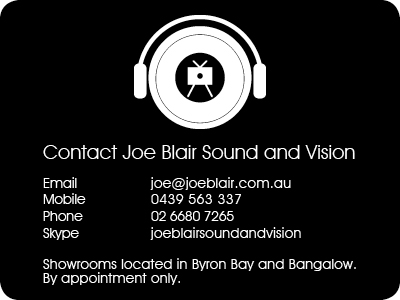Bookkeeping 101: Bookkeeping Basics for Small Businesses
Remote work has expanded across nearly every field, including bookkeeping. If you find someone who is a good fit for your business needs, it doesn’t matter if they are in California while you work from New York. You’ll want to create a contract that outlines details, such as deadlines, rates and expectations so that everyone is on the same page. Keeping up with the records in your small business might be a task you are willing and able to tackle yourself.
Get a bookkeeping certification.
Both the CPB and CB certifications require similar eligibility requirements. While any competent employee can handle bookkeeping, accounting is typically handled by a licensed professional. It also includes more advanced tasks such as the preparation of yearly statements, required quarterly reporting and tax materials. While they seem similar at first glance, bookkeeping and accounting are two very different mediums. Bookkeeping serves as more of a preliminary function through the straightforward recording and organizing of financial information.
How Does Bookkeeping Differ From Accounting?
- If you have a passion for helping clients solve problems, this course is for you.
- But it’s in the 15th century that the roots of modern bookkeeping can be found.
- Generally speaking, accrual accounting is better for larger, more established businesses.
- At the end of the course, you’ll receive a professional certificate, which you can put on your resume to demonstrate your skills and accomplishments to potential employers.
- Other smaller firms may require reports only at the end of the year in preparation for doing taxes.
- If your bookkeeper bills your customers or pays your vendors and employees, make sure you have proper checks and balances in place to mitigate the possibility of fraud.
A few employers offer on-the-job training for bookkeepers by providing internships and placement programs. According to the US Bureau of Labor Statistics (BLS), most bookkeepers can learn the profession’s basics in about six months [3]. Once you become a qualified bookkeeper, you can work as a permanent employee or freelancer. You can learn bookkeeping for free and at a low cost through online courses. These courses focus on bookkeeping fundamentals to help improve bookkeeping knowledge and skills.
Get started in bookkeeping
- From the start, business owners can get personalized answers to questions and spend less time on their books.
- Both accountants and bookkeepers work to maintain accurate records of finances, and sometimes the terms are used interchangeably.
- Regular audits and reviews ensure the budgeting process responds dynamically to the business’s needs.
- Fully automated accounting software makes keeping your books as easy as possible.
- When an effective bookkeeping system is in place, businesses have the knowledge and information that allows them to make the best financial decisions.
If a general ledger is like a book, a chart of accounts is like a book’s table of contents—it’s a list of all the accounts your business uses to record transactions. In this metaphor, each account is like a chapter of a book, and individual journal entries are kind of like the pages of each chapter. The balance sheet reports a business’ assets, liabilities, and shareholder’s equity at a given point in time. In simple words, it tells you what your business owns, owes, and the amount invested by shareholders. However, the balance sheet is only a snapshot of a business’ financial position for a particular date.
When doing the bookkeeping, you’ll generally follow the following four steps to make sure that the books are up to date and accurate. Remember that each transaction is assigned to a specific account that is later http://www.belgrade2017.org/en/news/slobodan-brankovic-about-organization-of-eich-2017 posted to the general ledger. Posting debits and credits to the correct accounts makes reporting more accurate. Now that you’ve balanced your books, you need to take a closer look at what those books mean.
Bookkeeping basics: A guide for small businesses
Business transactions can be recorded by hand in a journal or an Excel spreadsheet. To make things easier, many companies opt to use bookkeeping software to keep track of their financial history. At tax time, the burden is on you to show the validity of all of your expenses, so keeping supporting documents for your financial data like receipts and records is crucial. Most accounting software today is based on http://www.palestinefilm.org/resources.asp?s=libr&film_id=229 double-entry accounting, and if you ever hire a bookkeeper or accountant to help you with your books, double-entry is what they’ll use. If you need to borrow money from someone other than friends and family, you’ll need to have your books together. Doing so lets you produce financial statements, which are often a prerequisite for getting a business loan, a line of credit from a bank, or seed investment.
Take routine bookkeeping off your never-ending to-do list with the help of a certified professional. A QuickBooks Live bookkeeper can help ensure that your business’s books close every month, and you’re primed for tax season. Our expert CPAs and QuickBooks ProAdvisors average 15 years of experience working with small businesses across various industries. When you think of bookkeeping, you may think it’s all just numbers and spreadsheets. Bookkeeping is the meticulous art of recording all financial transactions a business makes.
Manage the general ledger.
A small business can likely do all its own bookkeeping using accounting software. Many of the operations are automated in the software, making it easy to get accurate debits and credits entered. Start by deciding on the system https://pesnibardov.ru/i.php?pesnya=7330 you want to use, whether it’s an online program, paid software or a spreadsheet. Next, set aside a dedicated time either weekly or biweekly to review your bookkeeping, reconcile transactions and complete necessary data entry.


